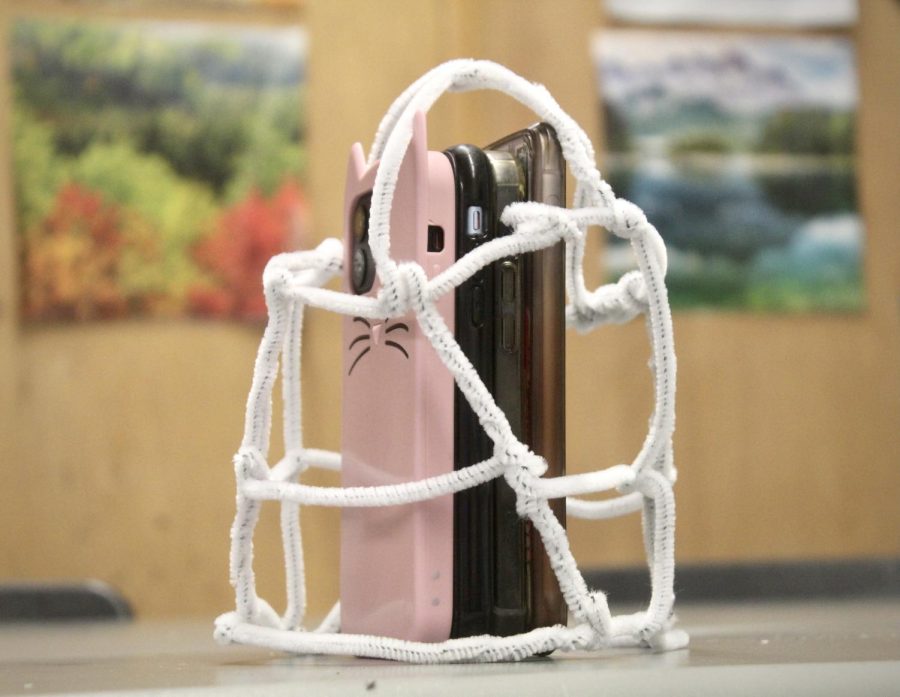Editorial: New cell phone policy infringes upon students’ autonomy
The new cell phone policy at Daniel Pearl Magnet High School starting Oct. 31 has felt restrictive and controlling to students through its harsh infractions and strict moderation of student action.
November 17, 2022
The Daniel Pearl Magnet High School (DPMHS) cell phone policy, which went into effect starting on Oct. 31, is a restrictive policy that aims to control students more than help them. Not only is the strike system it implements overblown to the proportion of the crime, but the policy’s own existence is unnecessary.
Every teacher at DPMHS has had the ability and right to take away a student’s phone prior to the policy if circumstances necessitated it, making the written document appear repetitive. Ultimately, it has always been up to the teacher to make up their own phone policy in accordance with how they saw students behave.
The implementation of the phone policy seeks to remove distraction from student learning, but in the process, restricts a student’s growth and ability in being able to make their own decisions. With this policy, students are infantilized by a policy that holds their hand into self-control, rather than allowing for growth and maturation of the mind.
The policy aims to change this and set baseline rules and punishments, but the latter half of the rules are preposterous considering the infraction is the simple act of taking a phone out in class. Students taken to the restorative justice program at lunch should not be those punished for simply using their phone in class.
The fourth infraction is worse, stating that a student will have their phone taken from them at the beginning of each day, every morning for a month straight. It will be kept either with the principal, only accessible during lunch where the student will be permitted to use it in the front office. Parents will be notified of this and possibly even fight it, but it is doubtful that the school will budge on the fourth infraction of this policy.
There are a myriad of reasons students go on their phones in class. Not all of the reasons are justified, but a student who has simply finished their work should not be treated with the same gravity as those who waste their time in class on entertaining themselves. Yet, that is what this policy suggests teachers do.
Students that are of high school age should be expected to learn how to make decisions for themselves, on their own terms. The policy takes away their agency in maturing and learning how to use their own time wisely.
It is worth mentioning that the beginning half and established rules were already pre-written in each class, slightly tweaked depending on the teacher but nevertheless already in existence. In fact, much of this policy seems to only regurgitate pre-existing policies in classrooms making its existence unnecessary and redundant, as well as restrictive with the infractions it brings down on students.








